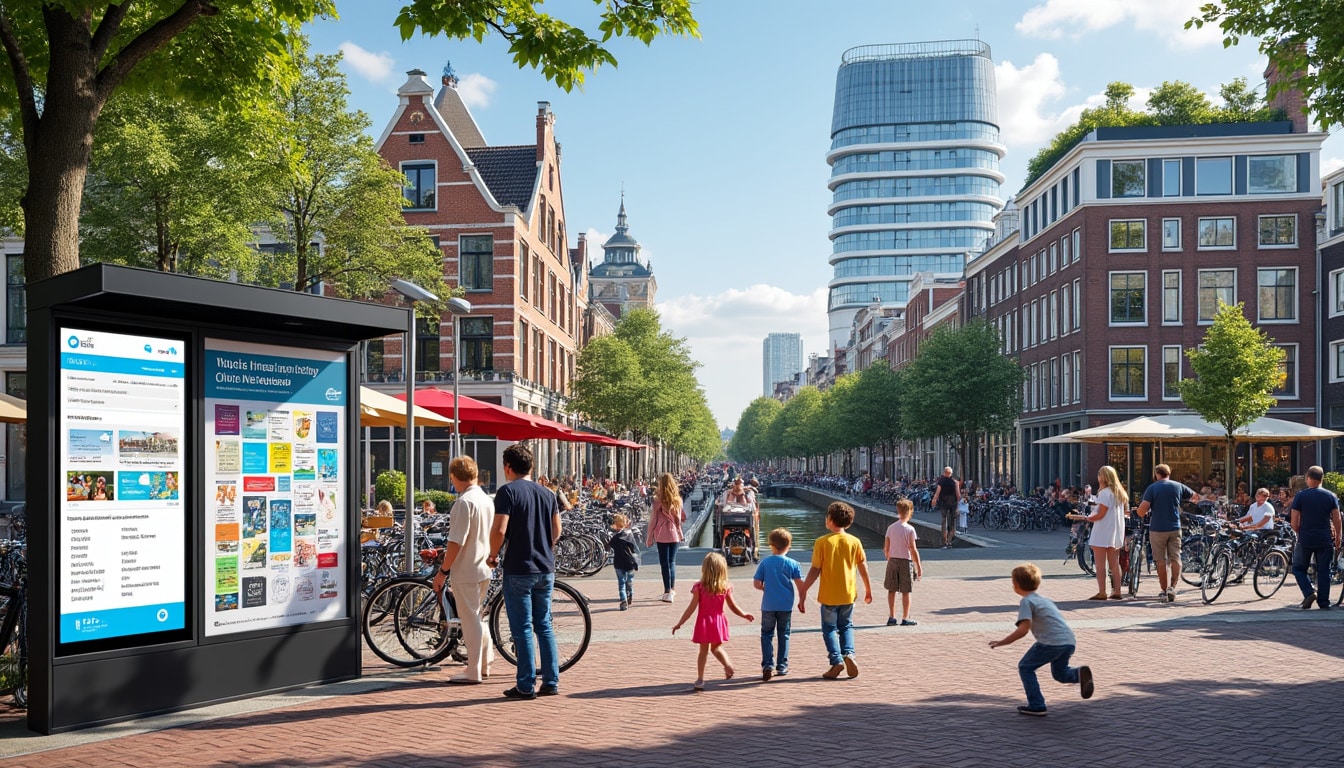Amsterdam, renowned for its cultural heritage and progressive policies, is a city that attracts millions of tourists each year. While it is famed for its liberal approach to certain social behaviors, it is essential for visitors and residents alike to understand the legal landscape. This article aims to provide a comprehensive guide to the main laws and regulations that govern Amsterdam, from the scenic canals to the bustling streets of the Red Light District. Understanding these rules helps preserve the unique character of the city while ensuring a harmonious experience for everyone. Let’s delve into the legal maze that gives Amsterdam its distinct charm.
Understanding Amsterdam’s Cannabis Regulations
When it comes to cannabis, Amsterdam is often perceived as a haven where anything goes. However, the reality is a little more nuanced. Cannabis has been in a legal grey area since 1976, part of a policy known as “tolerance” that permits the use of small quantities. This means possession, specifically up to 5g per person, is not prosecuted. Yet, contrary to popular belief, cannabis is technically illegal in the Netherlands.
This creates an intriguing paradox where “coffee shops” operate legally under strict regulations. Approximately 200 coffee shops are scattered around Amsterdam, each adhering to a stringent set of rules 🚦. For instance, these venues cannot sell alcohol, and they must only allow access to individuals aged 18 and above. The complexity further increases as there’s no legal method for coffee shops to procure cannabis supplies, resulting in a significant underground market. While tourists are welcome, they should be mindful of restrictions such as the prohibition of smoking cannabis in the Red Light District, which could result in a €100 fine.
- Never sell cannabis privately.
- Avoid consuming cannabis in non-designated areas.
- Respect age and purchase limits in coffee shops.
- Be cautious of newer rules prohibiting smoking in certain public spaces.
Notably, this balance between legality and tolerance is crucial for maintaining Amsterdam’s reputation as a city of freedom while respecting public order Book an Amsterdam Experience.

The Impact of Cannabis Policies on Tourism
Amsterdam’s approach to cannabis has long been a drawcard for international tourists, fascinated by the city’s relaxed stance. However, recent legislative changes reflect a shift towards prioritizing community well-being over tourism-driven economic benefits. The city has implemented stricter policies, particularly within the Red Light District, to align with the expectations of Amsterdam’s vibrant and diverse populace.
The Complex World of Amsterdam’s Sex Work Legislation
In addition to cannabis, Amsterdam’s Red Light District is famous worldwide for its regulated sex industry. Legal since 2000, sex work operates under a framework designed to safeguard workers and eradicate human trafficking. Those who choose this profession must register with the local chamber of commerce and adhere to the same labor laws as any other industry. Workers are also subject to income taxation, ensuring they receive standard employee protections under Dutch law ✔️.
Visitors should be aware of several pivotal rules surrounding this unique area:
- Avoid taking photographs of sex workers.
- Respect guided tour limitations in the district.
- Understand the strict opening hours for sex businesses.
- Observe no-drinking policies in public areas of the district.
Tours have been limited to mitigate disruption, and photography is a significant faux pas, potentially leading to altercations 📷. Strict adherence to these rules ensures a respectful environment for workers and visitors alike, upholding the district’s unique culture without compromising community standards.
Additionally, the Red Light District has faced increasing scrutiny and regulation to ensure safety and public health, spurred by both local advocacy and international attention Explore Amsterdam’s Culture.
Alcohol and Tobacco: What Tourists Need to Know
Though Amsterdam is welcoming to those seeking a lively atmosphere, its alcohol and tobacco laws are surprisingly robust. Public consumption of alcohol is forbidden in several areas, including public parks and streets within the city center. While beer gardens and terraces are popular spots, open containers outside designated areas often lead to fines. This regulation reflects Amsterdam’s commitment to social harmony and public cleanliness 🌿.
Alcohol sales are also regulated to complement these laws. Establishments must meet specific criteria to serve alcohol, guiding Amsterdam’s social venues to prioritize safety and responsibility over unrestricted revelry.
Tobacco legislation underwent significant changes in 2008 when public smoking was curtailed in response to health concerns. Currently, tobacco cannot be mixed with cannabis in coffee shop joints due to health regulations. Instead, shops provide herbal substitutes, maintaining Amsterdam’s commitment to health alongside its famed tolerance 🚭.
- Always check local areas for alcohol regulations.
- Observe no-smoking policies in enclosed public spaces.
- Be mindful of terrace and consumption rules.
- Consider using herbal tobacco substitutes in coffee shops.
This alignment with both health and leisure underscores Amsterdam’s role as a pioneer in thoughtful city regulation. By understanding and adhering to these laws, visitors help protect the ambiance of this historic city.
Navigating Vehicle and Cyclist Laws in Amsterdam
Bicycles are Amsterdam’s lifeline, and with that comes a comprehensive set of rules to keep cyclists safe. Dedicated bicycle lanes crisscross the city, and cyclists must abide by specific traffic laws. Importantly, lights are mandated at night, and cycling on sidewalks or while using mobile phones is prohibited.
Amsterdam’s infrastructure supports eco-friendly transport while mandating responsibility from its cyclists. Car drivers must also remain aware of these dynamics, handling intersections with caution. Parking regulations are strictly enforced, with improper bike parking leading to fines or removal 🚲.
- Utilize designated bicycle lanes.
- Follow traffic signals and pedestrian crossings.
- Ensure bicycles have functional lights after dark.
- Avoid using phones while cycling to stay alert.
Alongside bicycles, water traffic is an essential aspect of Amsterdam’s identity. Speed limits and designated routes for boats ensure that the city’s canal heritage remains pristine and accessible Book a Boat Tour.
Environmental and Urban Living Regulations in Amsterdam
One reason Amsterdam captivates visitors is its dedication to environmental preservation. Numerous regulations aim to maintain the visual and environmental appeal of the city. For example, rules about waste collection are strictly enforced to prevent litter 🌿. Times for rubbish collection are designated, minimizing the clutter of bags in public spaces.
The city also regulates residential rentals, particularly concerning platforms like Airbnb. Striking a balance between tourism and residential spaces is key, with specific areas under strict control to preserve community life and prevent housing issues 🏡.
| Regulation Type | Rule | Penalty |
|---|---|---|
| Waste Collection | Follow designated times for rubbish disposal. | Fines for non-compliance. |
| Short-term Rentals | Adherence to licensing and occupancy limits. | Fines and potential property re-assessment. |
| Public Drinking | No alcohol in designated public areas. | Fines. |
By carefully integrating economic needs with environmental policies, Amsterdam sets a benchmark for sustainable urban life. Visitors and residents sharing responsibility for preserving the city’s charm ensures Amsterdam remains vibrant and welcoming.
Frequently Asked Questions
- Can tourists smoke cannabis anywhere in Amsterdam?
No, tourists can smoke cannabis only in designated coffee shops. - Are there fines for drinking alcohol in public places?
Yes, consuming alcohol outside designated areas can result in fines. - What are the rules for taking photographs in the Red Light District?
Photography of sex workers is prohibited to ensure their privacy. - Is public transportation affected by these regulations?
Public transportation adheres to separate regulations but supports city laws, like no smoking. - How do vehicle rules differ for tourists?
Visitors must adhere to local traffic laws, similar to residents, ensuring safety for all on Amsterdam’s roads and canals.
The dynamic blend of history, culture, and modern governance makes Amsterdam an intriguing destination worthy of exploration. Navigating the city’s legal intricacies not only enriches one’s visit but helps sustain the lovely equilibrium the city strives to maintain.
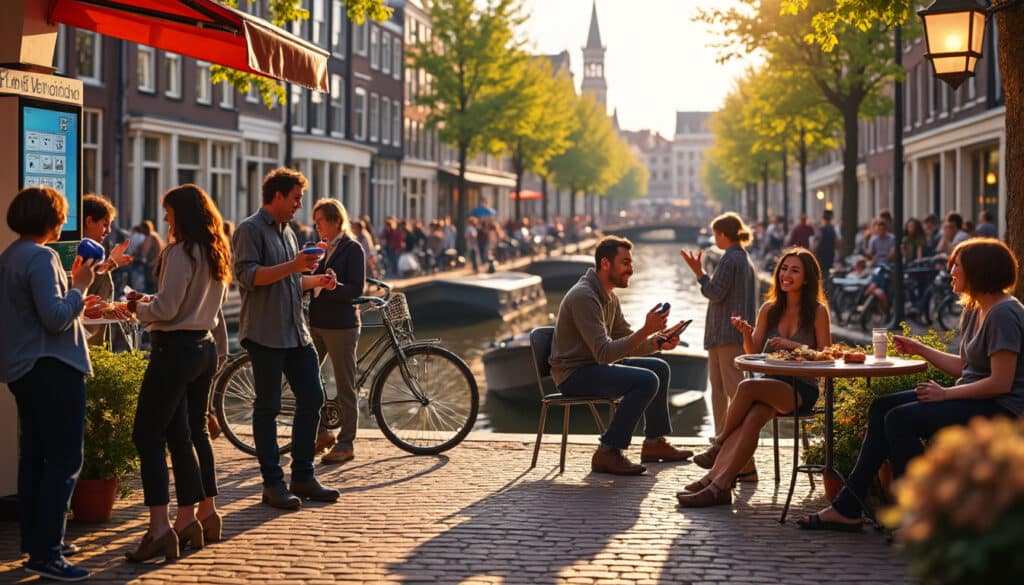
Calling and communication rules in Amsterdam
When navigating the vibrant cityscape of Amsterdam, one swiftly learns the intricacies of communication that define its unique social environment. This guide endeavors to demystify the calling and communication rules in Amsterdam, providing both newcomers and seasoned travelers with insights…
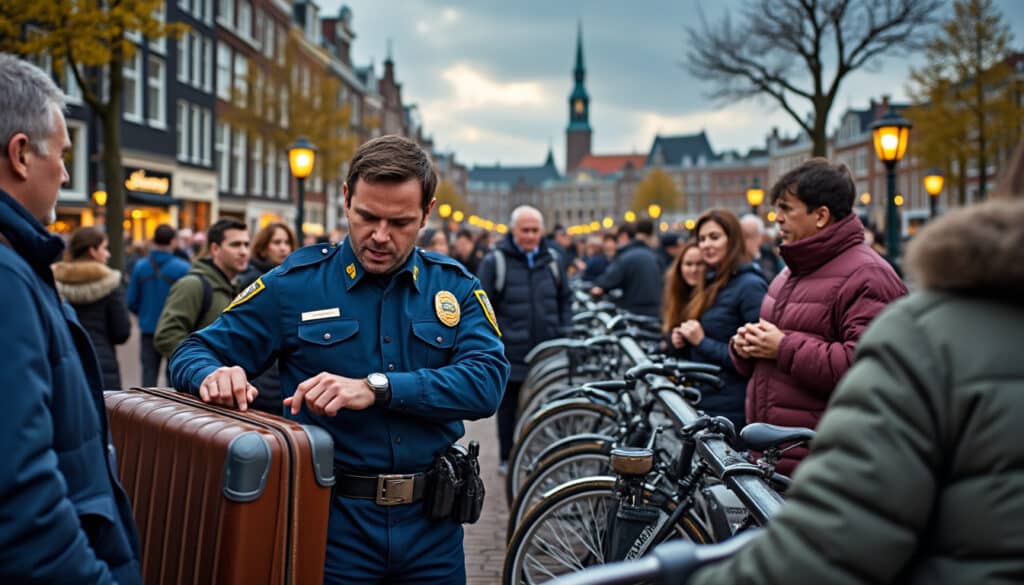
Criminal status and entry to Amsterdam
Amsterdam, with its picturesque canals and vibrant culture, is a popular destination for travelers worldwide. However, individuals with a criminal record might face challenges when it comes to entering the Netherlands. Various entry regulations, visa requirements, and background checks are…
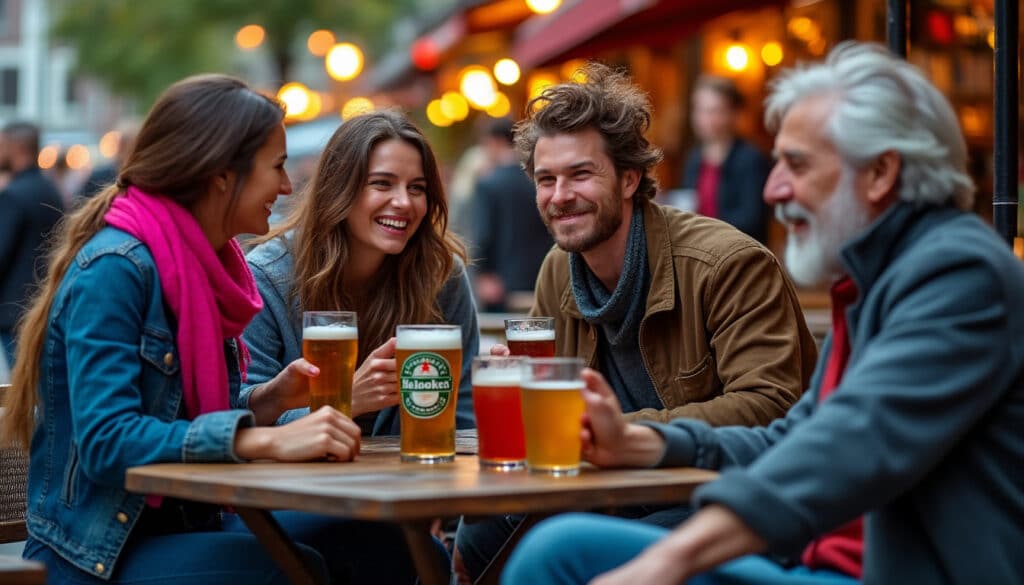
Drinking and age restrictions in Amsterdam
Amsterdam, with its iconic canals and vibrant nightlife, is a city that draws millions of visitors each year. Known for its liberal attitudes on certain social practices, one may wonder how these attitudes translate to drinking and age restrictions. With…
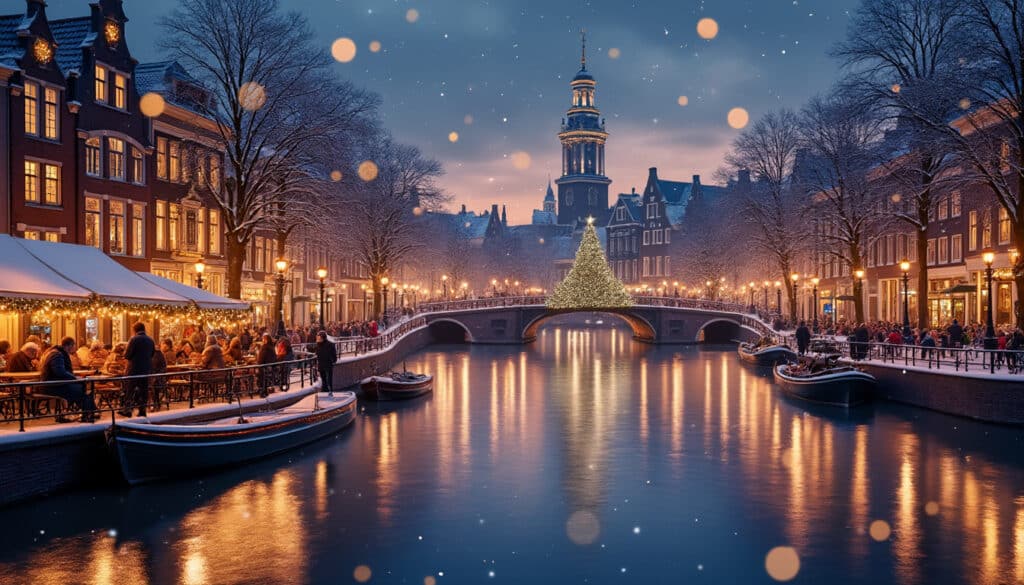
Amsterdam, a city renowned for its historic charm and vibrant culture, offers a myriad of holiday experiences for both locals and visitors. As 2025 approaches, understanding the nuances of holiday openings in this bustling metropolis can significantly enhance any travel…

How to move to Amsterdam legally
Amsterdam, a city renowned for its picturesque canals, vibrant culture, and a bustling international community, offers a wealth of opportunities for those considering relocating. Whether drawn by the rich tapestry of its history or its forward-thinking environment, moving to Amsterdam…

Smoking, drugs, and red light laws in Amsterdam
As 2025 unfolds, Amsterdam remains a city that fascinates millions around the world, particularly with its unique blend of liberal policies and stringent regulations. While the picturesque canals and rich history draw many visitors, it’s Amsterdam’s approach to smoking, drugs,…
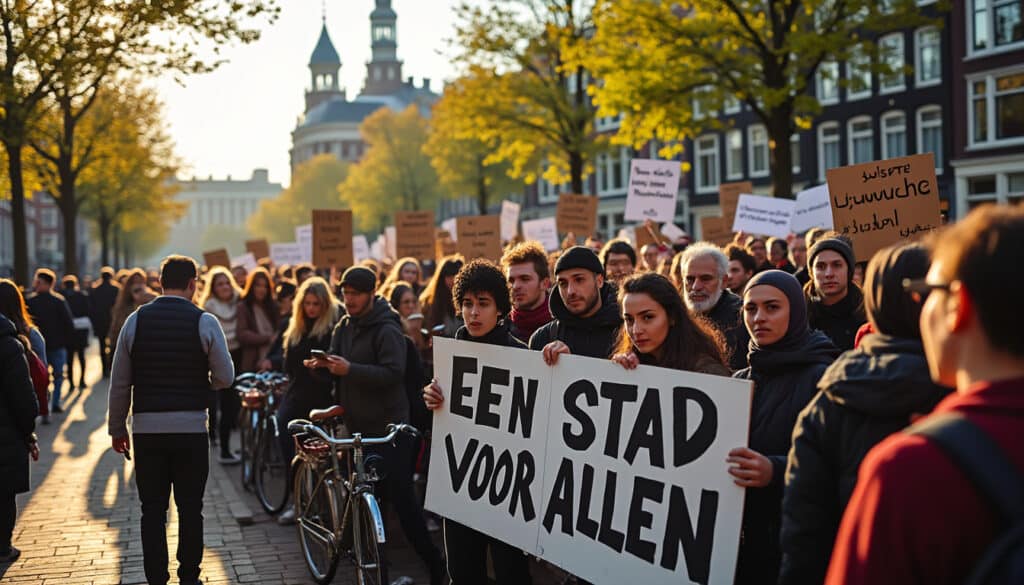
Social and discrimination issues in Amsterdam
Amsterdam is often celebrated as a beacon of diversity and progressive values, with its vibrant cultural scene and a population that boasts over 180 nationalities. Yet, beneath the surface of this multicultural harmony, the city grapples with significant social and…

